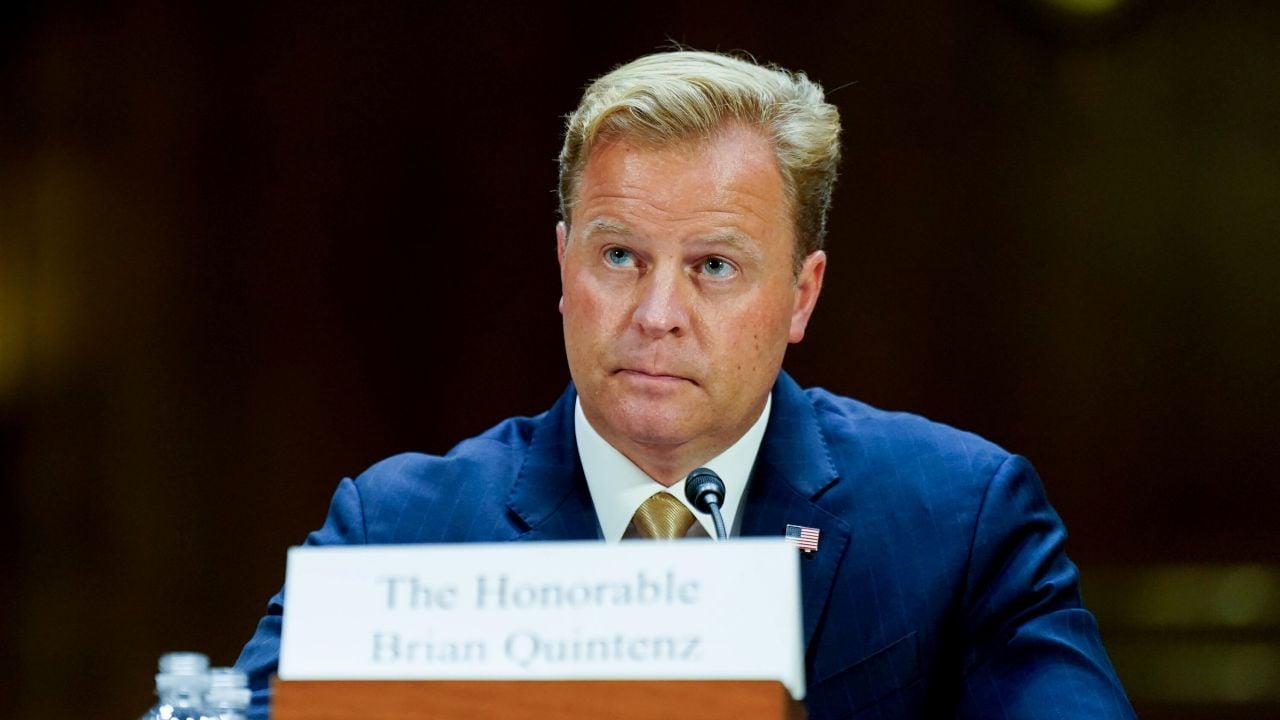The Unpredictable Road to Regulatory Leadership: Brian Quintenz’s CFTC Nomination Journey
The journey to leadership in regulatory bodies is seldom a straightforward path. For Brian Quintenz, the road to potentially chairing the Commodity Futures Trading Commission (CFTC) has been marked by both anticipation and abrupt turns. This report explores the circumstances surrounding his nomination, its potential implications for the CFTC’s approach to digital assets, and the undercurrents that may have contributed to the recent uncertainty surrounding his confirmation.
A Candidate with a Crypto-Centric Vision
Brian Quintenz is no stranger to the CFTC. His previous tenure as a commissioner has been characterized by a forward-thinking perspective on digital assets. This experience positioned him as a potentially influential figure as the agency navigates the complex landscape of cryptocurrency regulation. His deep understanding of blockchain technology and the evolving digital asset market made him a compelling, if not controversial, candidate to lead the CFTC, particularly as the agency considers assuming a more prominent role in overseeing the crypto space.
His nomination came at a critical juncture. With pending regulatory shifts and the potential passage of legislation like the CLARITY Act, which aimed to designate the CFTC as the primary regulator for digital commodities, Quintenz’s expertise seemed particularly valuable. He has consistently advocated for a comprehensive regulatory framework for crypto assets, indicating a willingness to engage with the industry and foster innovation while ensuring market integrity.
The Puzzle of the Sudden Removal
Despite the anticipation surrounding his nomination, a surprising development occurred: Brian Quintenz’s name was suddenly removed from the Senate Agriculture Committee’s vote roster. This unexpected detour, first reported by Bloomberg’s Lydia Beyoud, injected uncertainty into the confirmation process.
The reason for this sudden removal wasn’t immediately clear. Speculation arose that the committee required the presence of all Republican members for the vote to proceed, suggesting potential partisan considerations at play. Whatever the specific reason, the removal signaled a potential roadblock in Quintenz’s path to the CFTC chairmanship.
The Senate’s Scrutiny and Potential Roadblocks
Prior to the removal from the vote roster, Quintenz faced scrutiny from the Senate Agriculture Committee during his confirmation hearing. Lawmakers assessed his qualifications to lead an agency poised for expanded oversight of cryptocurrency markets. Questions likely revolved around his views on key regulatory issues, his approach to balancing innovation with investor protection, and his vision for the CFTC’s role in the evolving digital asset ecosystem.
Some potential areas of contention included concerns about his ability to lead the agency independently and ethically, considering his future plans. The committee’s thorough examination of his qualifications and potential conflicts of interest underscored the high stakes involved in this nomination.
The Broader Implications for Crypto Regulation
The uncertainty surrounding Quintenz’s nomination has broader implications for the CFTC and the future of crypto regulation. The agency is already facing vacancies, with the departures of current Chair and other commissioners anticipated. A delay in confirming a new chair could hinder the CFTC’s ability to effectively address emerging challenges in the digital asset market.
Furthermore, the nomination process unfolds against a backdrop of increasing legislative activity related to crypto regulation. The CLARITY Act, passed by the House, exemplifies the growing interest in establishing a clear regulatory framework for digital commodities. The Senate’s consideration of this and similar legislation will likely influence the CFTC’s future role and responsibilities.
Navigating Potential Conflicts of Interest
Another layer of complexity involves scrutiny of Brian Quintenz’s personal investments, particularly his cryptocurrency holdings. Concerns have been raised about potential conflicts of interest, especially regarding his involvement in matters related to prediction markets.
These concerns highlight the ethical challenges that arise when individuals with significant financial interests in the crypto space are considered for regulatory positions. Ensuring transparency and impartiality is crucial to maintaining public trust in the CFTC’s oversight of these markets.
The Uncertain Path Ahead
As of now, the future of Brian Quintenz’s nomination remains uncertain. The Senate Agriculture Committee may reschedule the vote, or the nomination may face further delays. The outcome will depend on various factors, including the resolution of any partisan disagreements, the addressing of ethical concerns, and the evolving political landscape.
Should Quintenz ultimately be confirmed, he would likely bring a unique perspective to the CFTC, shaped by his deep understanding of digital assets and his belief in the potential of blockchain technology. He could play a pivotal role in shaping the regulatory framework for crypto markets, fostering innovation while mitigating risks.
A Regulatory Crossroads
The saga of Brian Quintenz’s CFTC chair nomination underscores the complex and often unpredictable nature of regulatory appointments. It also highlights the growing importance of digital assets in the financial landscape and the need for clear, effective regulatory oversight. Whatever the ultimate outcome, this episode serves as a reminder of the high stakes involved in shaping the future of crypto regulation and the critical role of the CFTC in ensuring market integrity and protecting investors. The path forward will undoubtedly be shaped by the evolving dynamics of politics, technology, and the ever-changing landscape of digital assets.

